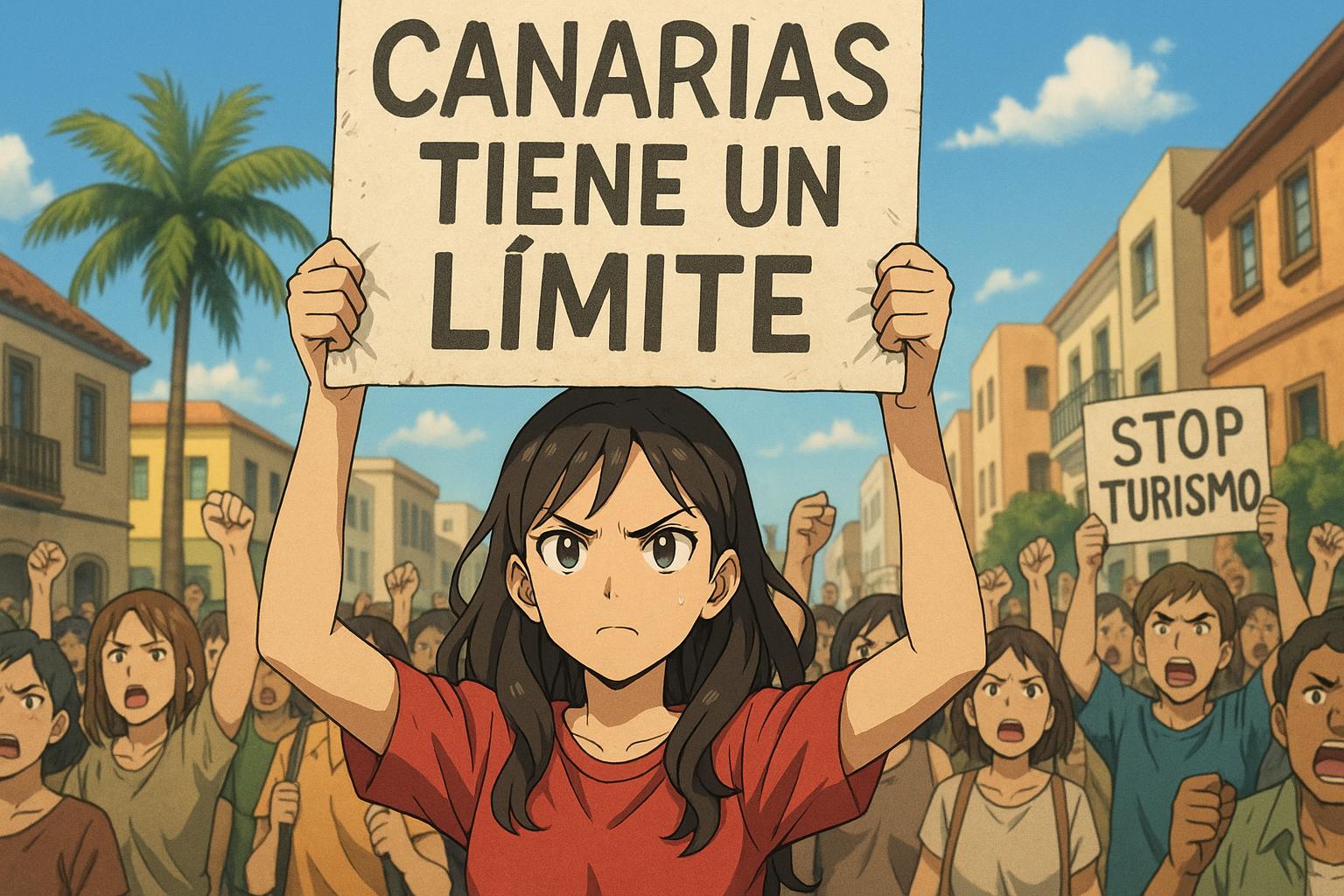Holidaymakers in the Canary Islands are facing dire circumstances as they find themselves barricaded within their hotels amid a surge of anti-tourism protests. Local residents, frustrated by the unchecked influx of tourists, have taken to the streets across Tenerife, Fuerteventura, El Hierro, La Palma, La Gomera, and Lanzarote, raising alarm about the social and environmental strains brought on by mass tourism that have been largely ignored by the government.
On a recent Sunday, demonstrators gathered passionately, brandishing banners proclaiming "Canarias tiene un límite" (The Canaries have a limit) and "El dinero del turismo, ¿dónde está?" (Where's the money from tourism?). The atmosphere was charged with the sounds of drums and whistles, as locals expressed their outrage against what many deem an intolerable number of visitors overwhelming their islands.
Tourism undeniably plays a crucial role in the economy of the Canary Islands, contributing a staggering 35% of GDP and employing around 40% of the local workforce. However, this overwhelming dependence on tourism has led to a cataclysmic imbalance. With nearly 18 million tourists descending on the islands each year—far outnumbering the local population of 2.2 million—residents are grappling with issues like overcrowding, infrastructural strain, and sharply rising housing costs. The proliferation of short-term rental properties has only worsened the housing crisis, forcing locals out of their own neighborhoods.
One demonstrator, Paula McKnight Morales, a local swimming instructor, articulated the struggle locals endure: "Tenerife has more tourists per year than Brazil, we simply do not have room." This exasperation reverberates throughout Spain, where anti-tourism sentiment is on the rise, manifesting not just in the Canary Islands but also in major cities like Barcelona and Valencia.
The ongoing protests in Barcelona have mirrored these frustrations, with residents resorting to dramatic tactics, such as using water pistols to douse tourists, signifying their deep-seated discontent. "Tourism kills the city," echoed through the air, emphasizing the collective grievances of communities beleaguered by an ever-increasing number of visitors. Diverse social and environmental groups have rallied behind these movements, highlighting the severity of the situation.
Protesters are demanding a drastic reduction in tourist numbers, a halt on new hotels and vacation rentals, and an eco-tax on tourism that would support conservation efforts for the islands' delicate environments, which are under continuous threat from unregulated development and waste pollution—with one striking placard reading, "tourists swim in s**t," directly pointing to the environmental degradation associated with tourism.
In response to the escalating situation, the government has made vague promises. The Tourism Minister for Tenerife, Lope Alfonso, announced intentions to consult with activists to find a supposed balance between tourists and residents. However, the disillusioned protest movement remains skeptical, insisting that real actions are essential rather than empty gestures.
This unrest has coincided with a notable decline in tourism from Britain, a vital market for the islands. Reports indicate an 8% drop in British bookings year-on-year for summer 2024, as travellers reconsider their plans against the backdrop of rising anti-tourism sentiment.
Activists argue that government inaction has only entrenched the prevailing status quo, with tourists often dismissing local customs and causing significant environmental harm. The demand for stricter regulations on vacation rentals resonates deeply within community dialogues concerning housing affordability and access. With many Canarians facing social exclusion or poverty, the cost of living has escalated to an urgent concern, intertwined with the community's fight for environmental sustainability.
As protests persist, they highlight an urgent call for a tourism model that places the wellbeing of local citizens at the forefront, rather than allowing tourism to dilute the quality of life for those who call the Canaries home. It is increasingly clear: while tourism serves as a vital economic asset, without scrupulous oversight and responsible management, it could risk tearing apart the very fabric of island life.
Source: Noah Wire Services
